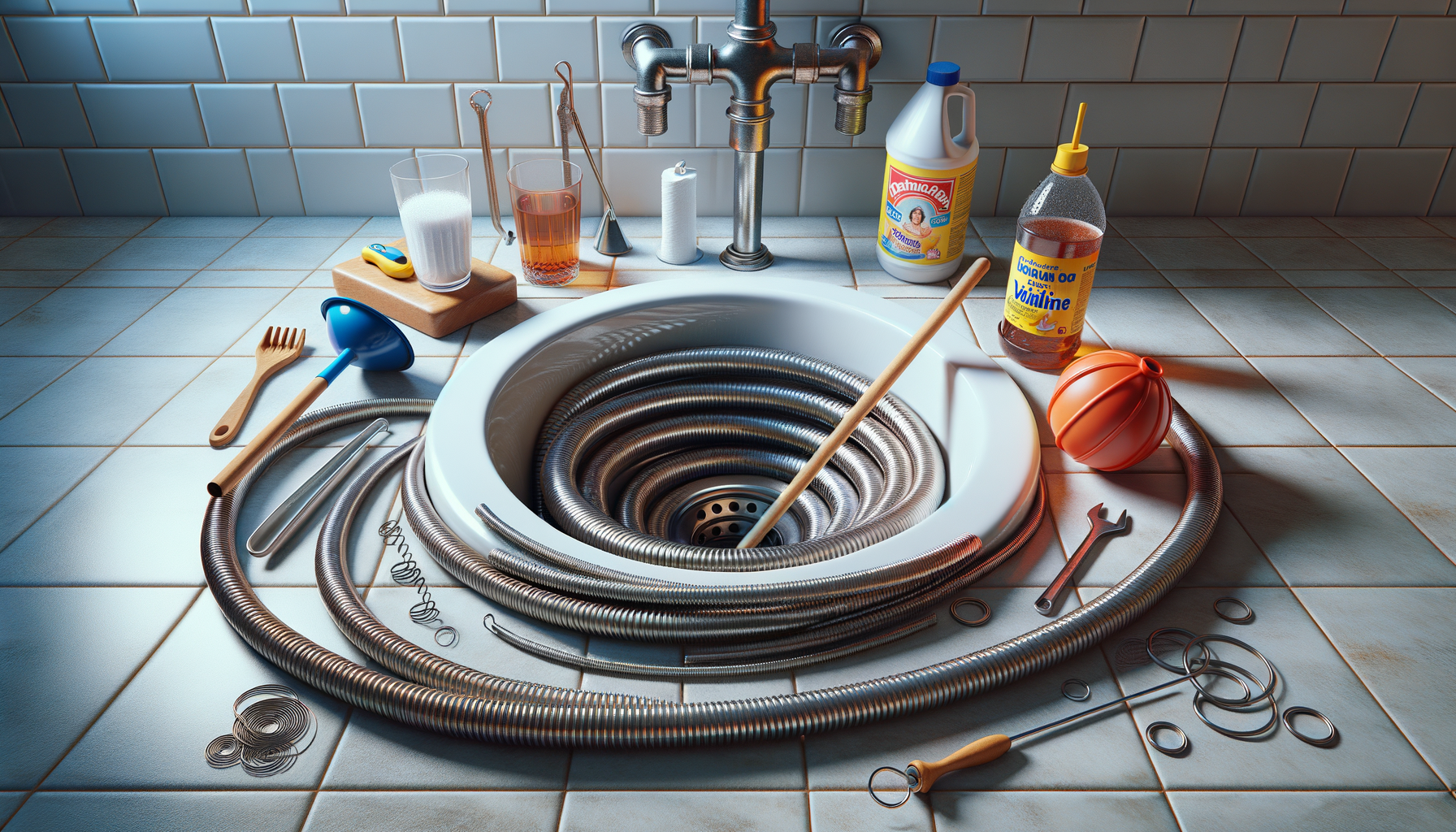Clogged Drain? Try These 4 Tricks Before Calling a Plumber
Discover effective methods to tackle clogged drains and pipes, saving you time and money.

Understanding the Causes of Clogged Drains
Clogged drains are a common household issue that can disrupt daily activities and lead to costly repairs if not addressed promptly. Understanding the root causes of these blockages is the first step in preventing them. Hair, soap scum, and grease are among the leading culprits. Hair, especially in bathroom drains, can form tangled masses that obstruct water flow. Soap scum, a byproduct of soap and hard water, gradually builds up along pipe walls, narrowing their diameter. In kitchens, grease from cooking can solidify within pipes, trapping food particles and causing significant blockages.
Other factors include foreign objects accidentally flushed down toilets or washed down sinks, such as cotton swabs, wipes, and small toys. Tree roots can also invade underground pipes, seeking moisture and nutrients, which can lead to severe blockages and pipe damage. Regular maintenance and mindful usage can mitigate these risks, ensuring a smooth flow of water through your plumbing system.
DIY Methods for Cleaning Drains
Before reaching for the phone to call a plumber, consider trying some DIY methods to clear minor clogs. One popular method is using a plunger. This simple tool can create enough suction to dislodge clogs in sinks and toilets. For more stubborn blockages, a mixture of baking soda and vinegar can be effective. Pour half a cup of baking soda followed by half a cup of vinegar down the drain, cover it, and let the fizzing reaction break down the clog. After about 30 minutes, flush the drain with hot water.
Another tool in your arsenal is a drain snake, a flexible tool that can reach deep into pipes to remove obstructions. For kitchen sinks, a mix of salt and hot water can help dissolve grease buildups. Always remember to wear gloves and take safety precautions when attempting these methods. While these DIY solutions can be effective for minor issues, persistent problems may require professional intervention.
The Role of Regular Maintenance
Regular drain maintenance is crucial in preventing clogs and ensuring the longevity of your plumbing system. Simple habits like using drain covers can prevent hair and debris from entering pipes. Regularly cleaning these covers and disposing of collected debris can significantly reduce the risk of blockages. Additionally, pouring boiling water down your drains once a week can help dissolve minor buildups of soap scum and grease.
For households with frequent clogs, scheduling periodic professional cleaning can be beneficial. Plumbers can use specialized equipment to thoroughly clean pipes, removing stubborn residues and preventing future issues. Regular maintenance not only prevents clogs but also extends the life of your plumbing, saving you money on repairs and replacements in the long run.
When to Call a Professional
While DIY methods are often effective, there are situations where professional intervention is necessary. If you notice that multiple drains in your home are clogged simultaneously, it could indicate a blockage in the main sewer line, which requires professional equipment to address. Persistent slow drainage, unusual odors, or water backing up into other fixtures are also signs that you should consult a plumber.
Professionals have access to advanced tools such as hydro-jetting equipment and cameras that can inspect pipes internally, identifying issues that are not visible to the naked eye. They can also provide expert advice on maintaining your plumbing system and preventing future problems. Investing in professional services ensures that problems are resolved correctly and efficiently, avoiding further damage to your home.
Conclusion: Keeping Your Drains Clear
Maintaining clear and functional drains is essential for a comfortable and hassle-free home environment. By understanding the causes of clogs and employing regular maintenance practices, homeowners can prevent many common plumbing issues. While DIY methods are useful for minor problems, recognizing when to call a professional can save time and prevent further damage.
Incorporating these practices into your routine ensures a healthy plumbing system, reducing the likelihood of unexpected and costly repairs. Remember, a proactive approach to drain maintenance not only protects your home but also contributes to a more efficient and sustainable living environment.